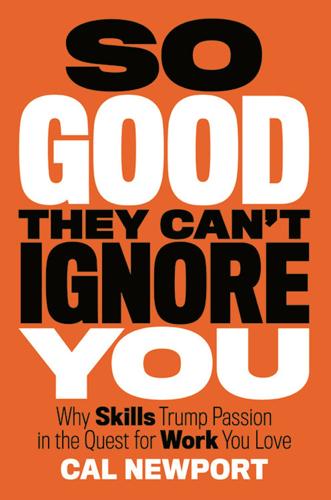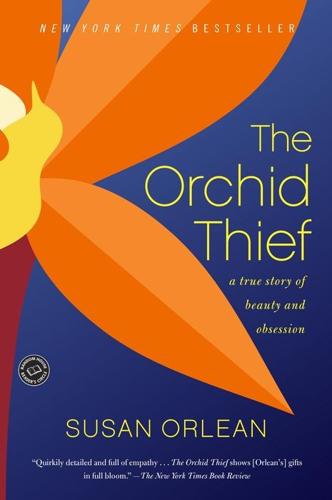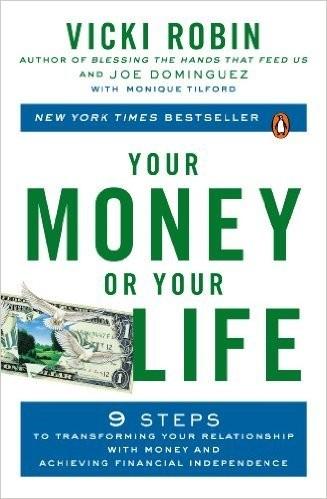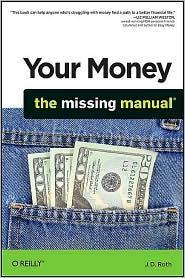Richard Bolles
description: an American author best known for his book 'What Color Is Your Parachute?', a popular job-hunting guide.
5 results

The Start-Up of You: Adapt to the Future, Invest in Yourself, and Transform Your Career
by
Reid Hoffman
and
Ben Casnocha
Published 14 Feb 2012
What you should be asking yourself is whether your parachute can keep you aloft in changing conditions. The unfortunate truth is that in today’s career landscape, your parachute—no matter its color—may be shredded and tattered. And if it isn’t that way already, it could get that way at any time. In his first chapter, Parachute author Richard Bolles writes, “It is important, before you enter the job hunt, to decide exactly what you are looking for—whether you call it your passion, or your purpose in life, or your mission.… Passion first, job-hunt later.”1 After four decades in print, this is still the accepted wisdom today. You see similar advice all over.

So Good They Can't Ignore You: Why Skills Trump Passion in the Quest for Work You Love
by
Cal Newport
Published 17 Sep 2012
Chapter Three Passion Is Dangerous In which I argue that subscribing to the passion hypothesis can make you less happy. The Birth of the Passion Hypothesis It’s difficult to pinpoint the exact moment when our society began emphasizing the importance of following your passion, but a good approximation is the 1970 publication of What Color Is Your Parachute? The author, Richard Bolles, was working at the time for the Episcopal Church advising campus ministers, many of whom were in danger of losing their jobs. He published the first edition of Parachute as a straightforward collection of tips for those facing career change. The original print run was one hundred copies. The premise of Bolles’s guide sounds self-evident to the modern ear: “[Figure] out what you like to do… and then find a place that needs people like you.”

The Orchid Thief: A True Story of Beauty and Obsession
by
Susan Orlean
Published 1 Jan 1998
Then came John Whitney, who sold swamp lots to Northerners after assuring them that in Florida “insects are neither numerous nor troublesome”; and Hamilton Disston, who in the 1880s sold underwater lots in the Everglades and then, when his scheme fell apart, committed suicide by shooting himself in his bathtub; and Richard Bolles, who marketed his underwater lots at the turn of the century with the slogan “A good investment beats a lifetime of labor”; and Barron Collier, who took a million acres of marshy scrubland near the Fakahatchee and set out to build a replica of Paris; and Charles Rodes, who felt there wasn’t enough premium-priced waterfront property to sell, so in the 1920s he built narrow banks of land out into lakes and sold it as waterfront property, and then he dug wide canals and sold the land adjacent to the boggy canals as waterfront property too—a practice that became known as “finger-islanding”; and of course Carl Fisher, a Detroit automobile mogul who came to Florida right after World War I and poured three million cubic yards of sand onto an expanse of mangrove swamp and created Miami Beach.

Your Money or Your Life: 9 Steps to Transforming Your Relationship With Money and Achieving Financial Independence: Revised and Updated for the 21st Century
by
Vicki Robin
,
Joe Dominguez
and
Monique Tilford
Published 31 Aug 1992
They had to tell themselves the truth about whether or not their current paid employment was really doing what paid employment is supposed to do: earn money. There are a number of excellent job-hunting guides on the market—and more coming out every day as jobs become a scarcer and more cherished commodity. The classic is the frequently updated What Color Is Your Parachute? by Richard Bolles.22 Beyond that, you’re on your own. Just one word of caution. As P. T. Barnum once said, there’s a sucker born every minute. There are a host of workshop leaders, agents, “headhunters,” advisers, counselors and the like who would be happy to help you find Job Charming—for a hefty fee. Some of these services are useful—but be discerning.

Your Money: The Missing Manual
by
J.D. Roth
Published 18 Mar 2010
Don't just pick a job because it pays well; have a goal in mind (see Setting SMART Goals). Choose a field based on your interests and experience, and know where you want to go in that field. If you don't know what you want to do, explore: read, take classes, and talk to people about their jobs (see the box on Taking a Second Job). For more inspiration, read Richard Bolles's classic book What Color Is Your Parachute? (Ten Speed Press, 2009). Your Money And Your Life: Finding Your Sweet Spot In his book Good to Great (HarperBusiness, 2001), Jim Collins describes how successful businesses are built by finding the sweet spot where passion, excellence, and economics meet.